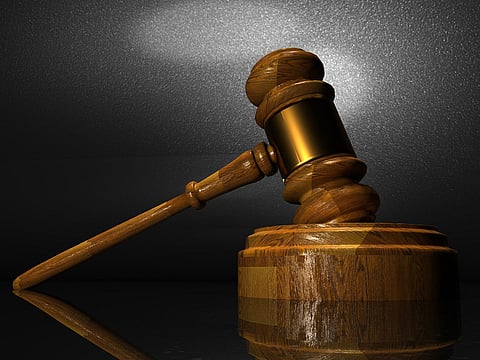Partners in LLC – do you have to pay for company debt?
What does the UAE Companies Law state on partners’ financial liability?

Dubai: The UAE Companies Law stipulates that the responsibility of a partner in a Limited Liability Company (LLC) should not exceed the amount of his or her share in the company’s capital, and that no enforcement is permissible on the partner’s private property to repay the company’s debt, as the company enjoys a legal status that is independent from its partners’, and the partner’s financial assets are independent from the company’s financial liabilities.
The Law, however, provides for exceptions such as in cases where the partner utilises this separation - of the LLC’s assets from the liability of partners - as a cover for actions he commits in contravention of the company’s Memorandum of Association (MoA), which may cause harm to the company’s other partners or creditors.
When a partner’s actions are proven to be harmful to the company or its other partners, and such actions involve deceit, fraud or gross errors, then the partner shall be, in his personal capacity, fully responsible for these acts. In such situations, the scope of his liability extends to his private property.
This was established by the rulings of the Dubai Cassation Court in Appeal No. 75/Commercial of 2008 rendered at the Session on January 1, 2009.
Here is a detailed look at the ruling that was issued:
It is decided in the adjudication of this court, in accordance with the requirement of the Companies Law, that the partner in the LLC is accountable for company’s debts only in the amount of his share in its capital.
However, as an exception to this rule the determination of the responsibility of a partner in an LLC in the amount of his share in the capital shall not be relied upon when the partner utilises the principle of the independence of the LLC’s assets from the liability of partners therein as a cover for his actions in contravention of the company’s Memorandum of Association, which may cause harm to his partners or creditors, if they involve deceit, fraud or gross errors.
In such instances, the principle of partner’s responsibility within the limit of his share in the capital shall not be relied upon. Instead, he will be liable in his personal capacity for these acts and this liability will extend to his private property.
It was established from the report of the expert appointed in the lawsuit, which the appellants have not disputed, that the net profits of the appellants’ company during the years from 2003 to 2006 was Dh13.8 million.
The company’s balance sheet as of [date redacted] showed that its most important assets was the inventory, valued at about Dh6 million, and it had no effect nor existence in the company.
The amount of the obligations incumbent upon the company accounted for Dh1 million.
So, the expert’s conclusion clearly reveals the gross error perpetrated by the manager of [Company name redacted], in which the partners in the company are apparent.
It was a deliberate error intended to harm the company’s creditors among whom is the appellee.
The error was to conceal the company’s property, whether the profits it achieved or the assets it owns, which represent creditors’ guarantee, without being stated in the company’s books, documents, balance sheet and the General Assemblies.
This indicates that the manager of the company and the partners therein are in contravention of the requirements of the Companies Law in accordance with the aforementioned Articles.
This judgment determined the appellant’s [partner’s] responsibility in person and in their private property for the company’s debt … based on the expert’s recommendation in his report.
- The writer is the founder and CEO of Kashwani Law Firm in Dubai
Sign up for the Daily Briefing
Get the latest news and updates straight to your inbox


